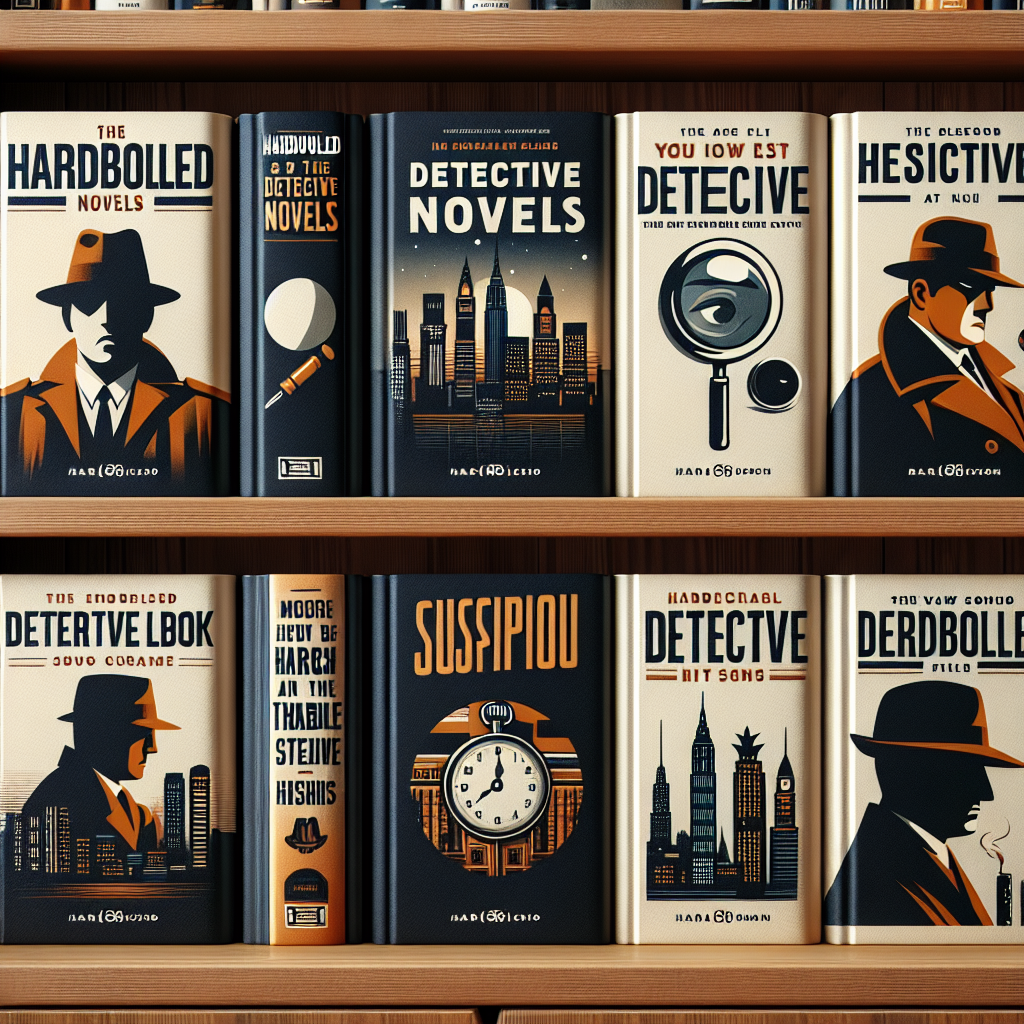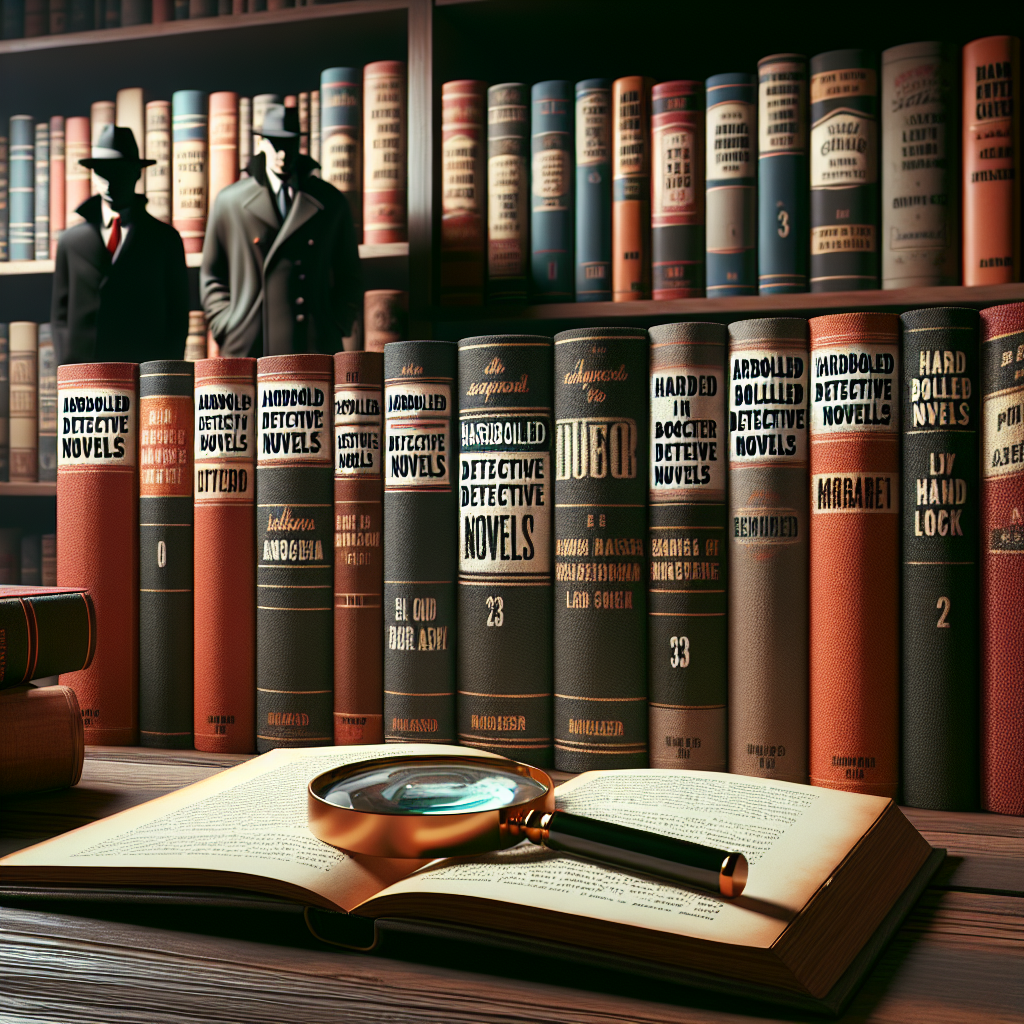As an Amazon Associate I earn from qualifying purchases.
The Best Hardboiled Detective Novels: A Journey Through Grit and Wit

The hardboiled detective novel, with its gritty landscapes, morally complex characters, and intricate plots, has captivated readers for nearly a century. This genre, which emerged in the 1920s and 1930s, represents more than just mystery and crime; it's a lens through which we view societal changes, moral ambiguity, and the human condition. This article delves into the best hardboiled detective novels, offering insights into their significance and enduring appeal.
Understanding the Hardboiled Genre
Before diving into the novels themselves, it's crucial to understand what sets the hardboiled genre apart. Characterized by its tough, cynical detectives and emphasis on realistic, often violent, portrayals of crime, the hardboiled genre offers a stark contrast to the more analytical and genteel detective stories that preceded it. These narratives often explore themes of corruption, betrayal, and the blurred lines between good and evil, all set against the backdrop of urban decay.
The Pioneers of Hardboiled Fiction
The foundation of hardboiled detective fiction was laid by authors like Dashiell Hammett and Raymond Chandler, whose works not only defined the genre but also elevated it to literary significance. Their novels introduced readers to a new type of detective: the lone wolf with a code of honor, navigating a world where the law is often as corrupt as the criminals it seeks to apprehend.
- The Maltese Falcon by Dashiell Hammett: Often cited as the first major work in the hardboiled genre, this novel introduces Sam Spade, a private detective who becomes embroiled in a hunt for a priceless statuette. Hammett's sharp dialogue and complex characters set a new standard for detective fiction.
- The Big Sleep by Raymond Chandler: Featuring the iconic detective Philip Marlowe, this novel is renowned for its intricate plot and Chandler's mastery of the hardboiled style. Marlowe's investigation into a wealthy family's secrets reveals a tangled web of murder, blackmail, and deceit.
Post-War Evolution and the Rise of Female Detectives
The post-World War II era saw the hardboiled genre evolve, reflecting the changing societal attitudes and the increasing complexity of the American urban landscape. This period also marked the emergence of female detectives, who brought new perspectives and depth to the genre.
- The Long Goodbye by Raymond Chandler: Considered by many to be Chandler's masterpiece, this novel delves deeper into the character of Philip Marlowe, presenting a more introspective and disillusioned detective.
- The Little Sister by Raymond Chandler: This novel explores the dark side of Hollywood, with Marlowe uncovering a series of murders connected to a small-town girl's search for her missing brother.
- Sue Grafton's Alphabet Series: Starting with “A is for Alibi,” Grafton's series features private investigator Kinsey Millhone. Set in the fictional town of Santa Teresa, California, these novels combine classic hardboiled traits with a modern, female perspective.
Modern Masters and the Genre's Evolution
In recent decades, the hardboiled detective novel has continued to evolve, with contemporary authors bringing new themes, settings, and social issues to the forefront. These works often blend traditional hardboiled elements with insights into modern-day concerns, such as technology, identity, and globalization.
- L.A. Confidential by James Ellroy: A complex tale of crime, corruption, and celebrity in 1950s Los Angeles, this novel is renowned for its ambitious scope and densely plotted narrative.
- The Girl with the Dragon Tattoo by Stieg Larsson: Combining hardboiled detective fiction with elements of the thriller genre, Larsson's novel introduces readers to Lisbeth Salander, a brilliant but troubled investigator.
- Mystic River by Dennis Lehane: Set in Boston, this novel explores the aftermath of a tragic crime that reunites three childhood friends. Lehane's work is noted for its emotional depth and complex characterizations.
Why These Novels Endure
The best hardboiled detective novels endure not only because of their thrilling plots and memorable characters but also because they offer insights into the human condition. Through the lens of crime and investigation, these novels explore themes of justice, morality, and the struggle for redemption in a flawed world. They reflect the societal tensions and anxieties of their times, providing a window into the complexities of human nature and the societies we inhabit.
Conclusion: The Lasting Legacy of Hardboiled Fiction
The hardboiled detective novel, from its early pioneers to its modern masters, remains a vital and compelling genre. Its evolution reflects changes in society and literature, while its core elements—gritty realism, moral ambiguity, and complex characterizations—continue to resonate with readers. The best hardboiled detective novels challenge us to confront uncomfortable truths about the world and ourselves, making them not only entertaining reads but also profound explorations of life's darker aspects. As we look to the future, the genre's adaptability and enduring appeal suggest that it will continue to captivate and intrigue readers for generations to come.
In exploring the best hardboiled detective novels, we not only celebrate their literary achievements but also recognize their significance as cultural artifacts. These novels are more than just stories; they are mirrors reflecting the struggles, hopes, and fears of humanity. Whether through the cynical eyes of a world-weary detective or the sharp mind of a modern investigator, the hardboiled genre continues to offer a powerful commentary on society, justice, and the human spirit.
Amazon and the Amazon logo are trademarks of Amazon.com, Inc, or its affiliates.






















































